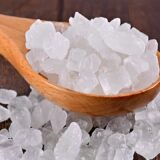Why Is Drinking Water While Standing Bad For You According To Ayurveda?
In Ayurveda, an ancient system of holistic health originating from India, water is revered as one of the essential elements for maintaining balance and vitality in the body.
However, Ayurveda also emphasizes the importance of how, when, and in what manner we consume water. One of the teachings that often raises eyebrows is the suggestion to avoid drinking water while standing.
Importance of Water in Ayurveda
Ayurveda, the traditional Indian system of medicine, considers water to be the elixir of life (Jeeva). It’s seen as fundamental for the existence of all living beings and plays a crucial role in maintaining overall health and well-being. Here’s why water is so important in Ayurveda:
Foundational element: One of the five basic elements (Panchamahabhuta) in Ayurveda is water, which is believed to be present in all bodily tissues and fluids.
Balances Doshas: Ayurveda emphasizes balancing the three Doshas (Vata, Pitta, Kapha) for optimal health. Water is crucial in maintaining this balance by supporting their functions.
Physiological functions: Water is essential for various bodily functions like digestion, nutrient absorption, waste elimination, regulating body temperature, and lubricating joints.
Detoxification: Proper hydration helps flush out toxins and impurities, promoting overall cleansing and preventing disease.
Healthy skin: Adequate water intake keeps the skin hydrated and glowing, promoting a youthful appearance.
Common Practices and Beliefs of Drinking Water
Ayurveda goes beyond just highlighting the importance of water; it offers specific practices and beliefs for optimal hydration:
Quality: Clean, preferably lukewarm or room temperature water is recommended. Boiling water and letting it cool is a common practice.
Quantity: While there’s no one-size-fits-all answer, Ayurveda emphasizes drinking water based on individual needs and thirst cues. Factors like climate, activity level, and Dosha type are considered.
Timing: Drinking water upon waking (Ushapan) is a key Ayurvedic practice to cleanse the digestive system. Sipping warm water throughout the day is encouraged, but avoiding large amounts with meals is advised for some Doshas.
Dosha-specific considerations: The ideal temperature and timing of water consumption can vary depending on your dominant Dosha. For example, individuals with a Kapha Dosha may benefit from warm water, while those with Pitta may prefer cooler water.
Water therapies: Ayurveda utilizes various water-based therapies like enemas (Basti) and hydrotherapy (Snana) for cleansing, rejuvenation, and treating specific ailments.
It’s important to note that while these are traditional practices, consulting with an Ayurvedic practitioner can help personalize water consumption recommendations for your specific needs and health goals.
Principles of Water Consumption and Doshas
Ayurveda views water consumption as a key element in maintaining digestive health and balancing the three Doshas: Vata, Pitta, and Kapha.
Each Dosha has unique characteristics that influence how the body processes water and digests food. Here’s a breakdown:
1. Vata Dosha:
Characteristics: Air and space elements, are associated with movement and dryness.
Digestion: Vata individuals tend to have irregular digestion and can be prone to constipation.
Water Consumption: Lukewarm water is recommended to pacify Vata’s dry and mobile nature. Sipping small amounts frequently throughout the day is advised, and avoiding excessive cold water is important.
2. Pitta Dosha:
Characteristics: Fire and water elements, associated with metabolism and heat.
Digestion: Pitta individuals have strong digestive fire (Agni) and may experience heartburn or acidity.
Water Consumption: Cool water is preferred to balance Pitta’s fiery nature. Drinking water before, during, and after meals can be helpful. Avoiding very hot or cold water is recommended.
3. Kapha Dosha:
Characteristics: Water and earth elements, associated with structure and lubrication.
Digestion: Kapha individuals have naturally strong digestion but can be prone to sluggishness and water retention.
Water Consumption: Warm water is ideal to stimulate Kapha’s sluggishness. Drinking water throughout the day in moderate amounts is advised, and avoiding excessive water intake is important.
Additional Considerations:
- Season: Ayurveda also considers seasonal variations and their impact on Doshas. For example, during hot summers (Pitta season), increased water intake might be necessary.
- Individual Needs: Thirst is the body’s natural signal for hydration. Listen to your body’s cues and adjust water intake accordingly.
- Agni (digestive fire): The strength of your digestive fire (Agni) also plays a role. If Agni is weak, drinking large amounts of water with meals can be counterproductive.
Following these principles and consulting an Ayurvedic practitioner can help you develop a personalized water consumption plan that supports your specific Dosha and digestive health.
Why Is Drinking Water While Standing Bad For You
While Ayurveda doesn’t explicitly advise against standing while consuming food, it does highlight the potential downsides that can affect digestion for different Dosha types:
1. Vata Dosha: Standing can aggravate Vata’s mobile and airy nature, potentially leading to bloating, gas, and irregular digestion. Sitting provides a more grounded and stable environment for Vata digestion.
2. Pitta Dosha: Standing might not directly affect Pitta digestion, but the act of rushing or multitasking while standing can increase Pitta’s fiery energy, leading to heartburn or acidity. Mindful eating, even while standing, is crucial for Pitta.
3. Kapha Dosha: Standing might not significantly impact Kapha’s digestion, but remaining seated can help stimulate Kapha’s naturally sluggish tendencies. Sitting upright promotes better digestive fire and prevents sluggishness.
Overall, Ayurveda prioritizes a relaxed and mindful approach to eating. While it doesn’t strictly forbid standing, sitting is generally seen as more supportive of optimal digestion and maintaining the balance of your Doshas.
Impact on Digestion According to Ayurveda
Ayurveda emphasizes creating an optimal environment for digestion. Here’s how it views the impact of various factors:
1. Mind-Body Connection: Stress, anxiety, and hurried eating can disrupt digestion according to Ayurveda. Sitting down in a calm and mindful state promotes better digestion.
2. Agni (digestive fire): Strong Agni ensures efficient digestion and nutrient absorption. Practices like eating in a seated position, avoiding distractions, and consuming easily digestible foods support Agni.
3. Digestive Enzymes: Proper food combinations and mindful eating allow the body to produce the right digestive enzymes needed for the optimal breakdown of nutrients.
Ayurvedic Ways to Consume Water
Ayurveda goes beyond simply gulping down water. It emphasizes mindful consumption based on your individual needs and Dosha type. Here are some key techniques for optimal hydration:
Water Quality:
Clean and preferably lukewarm or room temperature water is recommended. Boiling water and letting it cool is a common practice to ensure purity.
Quantity:
There’s no one-size-fits-all answer. Ayurveda focuses on drinking based on thirst cues and individual needs. Factors like:
- Climate (hotter climates require more water)
- Activity level (higher activity increases water needs)
- Dosha type (see below for specific considerations)
Timing:
- Ushapan (drinking water upon waking) is a key practice to cleanse the digestive system and stimulate Agni (digestive fire).
- Sipping warm water throughout the day is encouraged.
- Avoid large amounts of water with meals for some Doshas (explained below).
Dosha-Specific Considerations:
Vata Dosha:
- Lukewarm water is ideal to pacify Vata’s dryness.
- Sip small amounts frequently throughout the day.
- Avoid excessive cold water.
Pitta Dosha:
- Cool water is preferred to balance Pitta’s heat.
- Drink water before, during, and after meals (in moderation).
- Avoid very hot or cold water.
Kapha Dosha:
- Warm water is ideal to stimulate Kapha’s sluggishness.
- Drink water moderately throughout the day.
- Avoid excessive water intake.
Additional Techniques:
- Flavoring with herbs: Add a few mint leaves, fennel seeds, or sliced cucumber for a refreshing twist and potential digestive benefits.
- Herbal teas: Consume warm herbal teas like ginger or chamomile throughout the day for hydration and additional health properties.
- Soups and broths: Include light soups and broths in your diet for added hydration and nourishment.
Remember: Consulting an Ayurvedic practitioner can help personalize these techniques based on your specific needs and health goals.
Scientific vs. Ayurvedic Perspective on Water Consumption
Both scientific and Ayurvedic perspectives acknowledge the importance of water for:
- Overall health and well-being
- Regulation of body temperature
- Lubrication of joints
- Digestion and nutrient absorption
- Waste elimination
Differences:
- Water Quantity: Modern science relies on body weight, activity level, and environmental factors to determine individual water needs. There’s no single “eight glasses a day” rule. Ayurveda emphasizes thirst cues and considers Doshic influences, with a more individualized approach.
- Water Temperature: Science doesn’t have strong evidence supporting specific water temperatures for optimal hydration. Ayurveda recommends temperature variations based on Dosha type.
- Digestion and Water Intake: Scientific studies are ongoing regarding the impact of water intake during meals. Ayurveda advises moderation with meals for some Doshas.
- Holistic vs. Reductionist Approach: Science focuses on specific mechanisms of action, while Ayurveda takes a holistic view, considering the mind-body connection and the Doshic balance.
Scientific Evidence:
There’s limited scientific research directly validating specific Ayurvedic practices related to water consumption. However, some aspects have scientific backing:
- Hydration and Digestion: Studies show dehydration can impair digestion, while proper hydration aids the digestive process.(1)
- Warm Water and Digestion: Warm water consumption might improve circulation and stimulate bowel movement, potentially aiding digestion in some individuals.(2)
Important Considerations:
While some Ayurvedic practices may be intuitively helpful, they lack rigorous scientific validation. Consulting a qualified healthcare professional is crucial before making significant changes to your water consumption routine, especially if you have underlying health conditions.
Both Ayurveda and science highlight the importance of hydration. Science provides evidence-based guidelines, while Ayurveda offers a personalized approach.
Considering both perspectives, along with your individual needs and consulting a healthcare professional, can help you develop an optimal hydration plan.
FAQs
1. What does Ayurveda say about drinking water with meals?
Ayurveda suggests sipping warm water with meals to aid digestion, rather than drinking large amounts which can dilute digestive juices.
2. Can I drink cold water according to Ayurveda?
Cold water is generally discouraged in Ayurveda as it can extinguish Agni (digestive fire); room temperature or warm water is preferred.
3. Is it better to sip or gulp water in Ayurveda?
Sipping water slowly is recommended in Ayurveda, as it allows for better absorption and supports hydration without overwhelming the system.
4. How much water should I drink daily based on Ayurveda?
Daily water intake varies by individual constitution (dosha). Generally, drinking enough to stay hydrated without excess is key.
5. Are there specific times of day to drink water in Ayurveda?
Ayurveda advises drinking water according to natural body rhythms, such as upon waking and between meals, to support optimal hydration and digestion.
6. Does Ayurveda recommend any specific types of water for drinking?
Ayurveda suggests drinking room temperature or slightly warm water, preferably stored in copper vessels overnight for added benefits.
7. Is there a recommended posture for drinking water in Ayurveda?
Ayurveda recommends sitting in a comfortable, cross-legged position (such as Sukhasana) or on a chair with a straight back while drinking water.
8. Can drinking water while standing really affect my overall health?
Ayurveda believes that posture during water consumption can impact digestion, energy levels, and overall vitality over time, aligning with its holistic approach to health.
9. How can I balance my doshas through water consumption according to Ayurveda?
Understanding your predominant dosha (Vata, Pitta, or Kapha) can help tailor your hydration habits to support balance. For example, Vata types may benefit from warm water with ginger, while Pitta types may find cooling herbal infusions beneficial.
10. Are there any rituals or prayers associated with drinking water in Ayurveda?
Ayurveda emphasizes gratitude and respect for water as a life-giving force. Some traditions include offering a prayer or expressing thanks before drinking water to honor its importance in sustaining life and health.
Ayurveda’s caution against standing while drinking water stems from its deep understanding of how posture influences digestion and overall health.

























